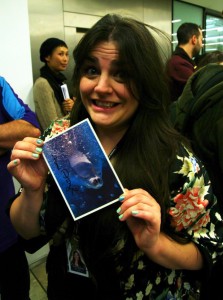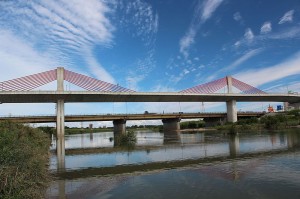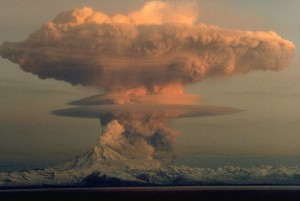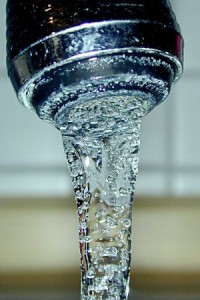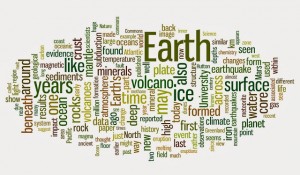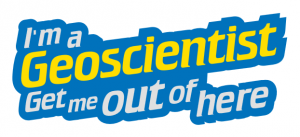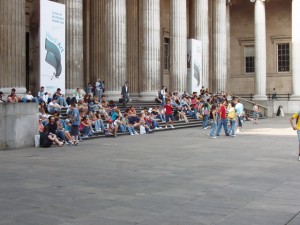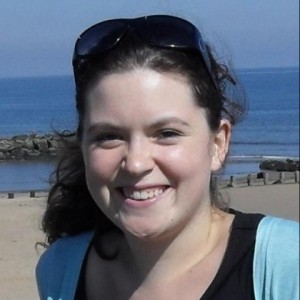It turns out, I’m not so great at keep the promises I make our blog readers… I AM working on the next post for the Making the most of your PhD series.
In the mean time, this 10 minute interview actually fits the theme of the Making the most of your PhD series quite well. This week, I bring you Hayley Dunning, of the Natural History Museum, London. Whilst Hayley’s current role is as a science web editor, the route to finding her path and career wasn’t straight forward. It is sometimes difficult to see how a love of science can be continued into a fulfilling career that does not involve academia and research. Hayley embarked on a PhD and decided it wasn’t right for her. As a science web editor she has been able to combine the two things she loves most, science and writing. I talk about PhDs a lot in Geology Jenga, but actually, the whole point of the 10 minute interviews is to highlight the unsung heroes of science (in the traditional academic sense) and Hayley is most certainly one of them!
Vital Statistics
- You are: Hayley Dunning
- You work at: The Natural History Museum, London.
- Your role is: Science web editor
Q1) What are you currently working on?
Right now I’m building pages about the Museum’s cetacean strandings program. They have been recording details of stranded whales, dolphins and porpoises around the UK for 100 years, and now they want to the public to be more involved in reporting and identifying strandings.
I also write news articles about whatever new research is published by the Museum’s scientists; today it’s about meteorites (as it often is!).
Q2) What is a typical day like for you?
If there’s a journal article coming out, I’ll read the paper and call the scientist to find out more about it. Often I’m looking for a nice colourful anecdote – something the national media wouldn’t get. It’s fun to learn about the scientist’s personal adventures.
If there’s no news that day I’ll make web pages, usually about the research that goes on behind the scenes, the massive collections the Museum houses or something that the public are thinking about. For example, the other week I wrote up pages about the false widow spider in the UK, trying to allay some of the undue panic!
Q3) Does your job allow you to have any academic outputs?
I don’t write academic papers, but since I decided to go this route I’ve written a lot of articles for magazines and other publications. I used to be on an academic path, working towards a career as a volcanologist, but I found it too narrow in the end. Since, I’ve written articles about intelligent machines, body clocks, meteorites from Mars, drugged mummies and everything in between.
Q4) What has been the highlight of your career so far? And as an early stage researcher where do you see yourself in a few years time?
At the Museum, the false widow spider report was a highlight. I just heard today it helped make October one of the most successful months ever on the website.
A long article I wrote about fracking in Canada was a personal achievement. I like writing about all sorts of different things every day, but it’s also nice to get a deep expertise in something. I guess I’m still at scientist at heart!
In a few years I’d like do more features and long-form science writing, bringing an art back to the joy of discovery. Non-fiction books would be great, but as long as I’m still learning I’ll be happy.
Q5) To what locations has your research taken you and why?
Volcanology took me to Canada, Alaska, Mexico and Japan, for which I am very thankful! At the Museum, the fun stuff tends to come to me instead. Working for such an old and renowned public-facing science organisation has its perks – last week Sir David Attenborough and Bill Bailey unveiled a statue of Alfred Russel Wallace at the Museum. I grabbed a random postcard from my office and managed to get an autograph from Sir Dave!
Q6) Do you have one piece of advice for anyone wanting to have a career similar to yours?
Go for it. Here’s the silly fact about me: I have three Masters degrees. Two are in Earth sciences; the second started out as a PhD (the third is in journalism). I’d always liked writing, and it was honestly a lightbulb moment when I realised I could marry science and writing as a career. I thought long and hard about giving up my PhD – I’d never get to call myself Dr Dunning! But I realised in the end it wasn’t giving up, it was not wasting time and effort on something I ultimately didn’t want, and wasn’t going to use. I’m not suggesting it was a sudden decision that anyone should take lightly, but if there’s something you really want to do, don’t let a seemingly pre-determined career get in your way.
Q7) If you could invent an element, what would it be called and what would it do?
I’d love to create an element with the power to make me less sleepy or to make things float, but practically it would be nice to have a radioactive element that would act as a powerful and relatively clean fuel source. I think I’d call it Infinitum (although it’s chemical symbol would be Hd – I want some glory!)
Hayley did an MSci in Environmental Geoscience at Bristol where she spent a year abroad in Iceland. She then did an MSc in Earth and Atmospheric Sciences at the University of Alberta, and finally a Masters in Journalism at the University of British Columbia. Now she’s not a student any more, she’s trying to figure out what to do with all this spare time that isn’t filled with assignments and deadlines!

